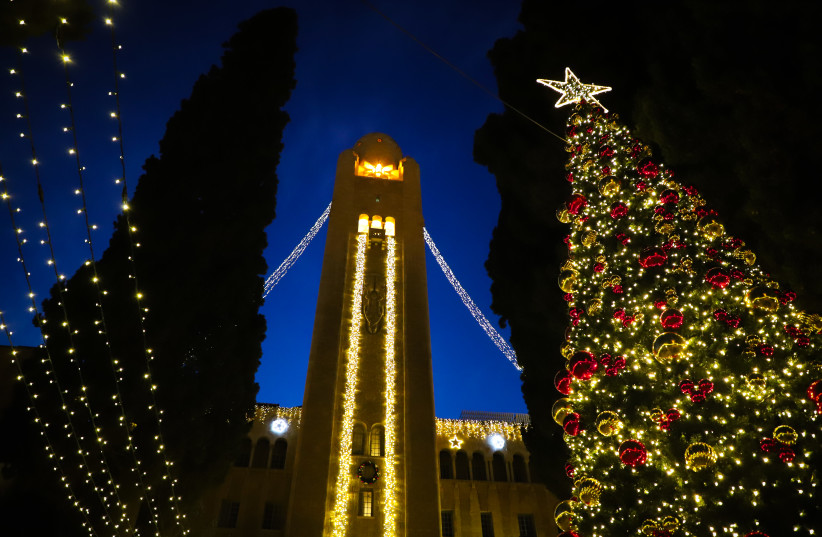As a child growing up in Manchester, England, Christmas was the main event of the year – a celebration which started to raise its sparkly head after the summer holidays with the “countdown to Christmas.”
The build up to it permeated every corner of my world.
I’ll never forget seeing the words “Merry Xmas” spray-painted onto a tree trunk which I walked past every day on my way to the school bus, when I was around 14.
Even now, I can recall the frisson of excitement that I felt walking past that tree.
I’ve always loved Christmas.
The fact that my mother’s birthday fell on Christmas Day, meaning we were all off work and school, gave us a good excuse to have a proper knees-up.
Naturally, or so it seemed to me at the time, that celebration comprised Christmas lunch.
Turkey (kosher of course) with all the trimmings, sprouts, apple sauce, Christmas pudding – you name it, it adorned our table. We even had crackers and wore stupid paper hats.

You may think this odd, coming from a nice Jewish girl from a “traditional” Jewish family.
We went to synagogue three times a year, without fail; lit candles on Friday nights, and had what we regarded as a kosher home.
There were unspoken rules about what was and what wasn’t acceptable. “Marrying out” was an absolute no-no, as was going out on Friday nights. I didn’t do either.
Conversely, however, Christmas was high up on our list of fun activities, something which seemed perfectly normal to me at the time.
We didn’t have a tree, but everything else was fair game.
It wasn’t until I met my husband and he expressed some surprise at our huge Christmas gathering, that I started to question why we did it and more importantly, why I had followed this family tradition into adulthood.
Growing up in a mainly secular environment, going to a non-Jewish school, having friends of all different faiths, colors, creeds and backgrounds was something I always cherished.
I was broad-minded, tolerant, inclusive and worldly.
I even made of point of choosing to study Hinduism and Islam for my religious studies A-level. In my mind I didn’t need to study Judaism because I was living it. I wanted to broaden my horizons instead of deepening my understanding of my own religion.
My problem, however, although I was unaware of it at the time, was that my understanding of Judaism was pretty woeful.
I was so busy trying to be all things to all people, that I didn’t make time for my own “people.”
Consequently, I never had a strong connection to my own Jewish identity, and my knowledge of Jewish history was even flimsier.
Thus, while celebrating Christmas seemed like the most natural thing in the world, not once in my entire childhood did we put up a sukkah, for example and I never asked why.
WHERE DOES all this leave a young Jewish woman?
Rudderless and confused; or worldly, broad-minded and inclusive?
First and foremost, it enabled me to instill in my own children an appreciation of diversity and a strong sense of fairness.
They recoil in the face of racism to the point where they will always speak out if they see it, even if that means swimming against the tide.
This is something that makes me immensely proud.
Sadly, however, it also rendered me unable to teach them about their own heritage and their own past. When they came to me with such questions when they were little, I had to tell them to ask their father.
At times, I felt as if I’d failed them.
In a bid to fit in with my surroundings as I was growing up, I failed to appreciate one of the most important aspects of my life – that which underpins my past, my present and my future. Judaism.
I was so busy looking at everyone else to try to understand them, to join in with them, to celebrate with them, that I neglected myself.
Accordingly, I’ve been playing catch up ever since.
